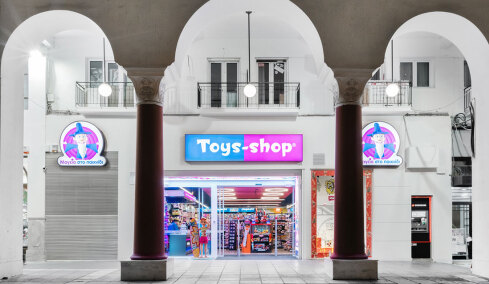
We, the poor…
We, the poor…
1 in 5 fellow citizens are missing essential everyday things

UPD:
The Greeks as it seems were poor even before the Memorandum according to the data for living conditions in the country, as recorded in the survey of the Greek Statistical Authority 2009.
The results for living conditions in Greece, just one year after the economic crisis and a few months before our induction into national article no99, in other words the Troika, are revealing about the living standard not only for the classes below the poverty line but also for the middle class, which was thought of as the fuel of internal economic activity.
According to this research, it seems that the deprivation in terms of essential goods and services, such as the difficulty in satisfying basic needs, poor housing conditions, the burden of housing expenditure, failure to repay loans or installment purchases, difficulties in paying fixed bills and difficulty in dealing with routine needs - the "quality of life" in short - not only affects groups living below the poverty line - approximately 20% of the population - but also touches the backbone of economic life in Greece too.
Specifically, 24.1% of the poor population of Greece say they are unable to include in their diet chicken, meat, fish or vegetables of equal nutritional value, every second day, or more than 2 times per week, while the proportion of the “non poor” population, i.e. those found even just above the poverty line, is estimated at 3,3%.
Almost the entire population say they’re unable to cope with emergencies that reach 500 euros like emergency medical care, or damages to their home. Specifically, 60.3% of the poor population and 21.4% of the non-poor state they cannot allocate more than 500e for an emergency, which virtually indicates that there are no savings.
18.5% of the population says it is quite difficult to repay loans or installments for the purchase of goods and services, which demonstrates the reckless lending by banks to buy assets that exceed the real income of consumers.
The results for living conditions in Greece, just one year after the economic crisis and a few months before our induction into national article no99, in other words the Troika, are revealing about the living standard not only for the classes below the poverty line but also for the middle class, which was thought of as the fuel of internal economic activity.
According to this research, it seems that the deprivation in terms of essential goods and services, such as the difficulty in satisfying basic needs, poor housing conditions, the burden of housing expenditure, failure to repay loans or installment purchases, difficulties in paying fixed bills and difficulty in dealing with routine needs - the "quality of life" in short - not only affects groups living below the poverty line - approximately 20% of the population - but also touches the backbone of economic life in Greece too.
Specifically, 24.1% of the poor population of Greece say they are unable to include in their diet chicken, meat, fish or vegetables of equal nutritional value, every second day, or more than 2 times per week, while the proportion of the “non poor” population, i.e. those found even just above the poverty line, is estimated at 3,3%.
Almost the entire population say they’re unable to cope with emergencies that reach 500 euros like emergency medical care, or damages to their home. Specifically, 60.3% of the poor population and 21.4% of the non-poor state they cannot allocate more than 500e for an emergency, which virtually indicates that there are no savings.
18.5% of the population says it is quite difficult to repay loans or installments for the purchase of goods and services, which demonstrates the reckless lending by banks to buy assets that exceed the real income of consumers.
Among the most disturbing findings of this research is that the 35.8% of poor households indicats difficulty in paying fixed bills, such as electricity, water and gas while families living below the poverty line are unable to cover “luxury” expenses , which until a few years ago were basic needs, such as 7-day holidays, at a percentage of 77,7%.
It is impressive that 40% of middle class families indicate inability to meet the costs of a seven-day holiday, months before the country was subject to international audit.
As to the indicators for quality of life, namely those that record the acquisition of electronics and luxury goods, it seems that poverty has a strong impact on computers, since they are regarded as the most unnecessary purchase by families living below the poverty line, indicating their indifference about buying a one at a rate of 17,7%.
It is impressive that 40% of middle class families indicate inability to meet the costs of a seven-day holiday, months before the country was subject to international audit.
As to the indicators for quality of life, namely those that record the acquisition of electronics and luxury goods, it seems that poverty has a strong impact on computers, since they are regarded as the most unnecessary purchase by families living below the poverty line, indicating their indifference about buying a one at a rate of 17,7%.
UPD:
Ακολουθήστε το protothema.gr στο Google News και μάθετε πρώτοι όλες τις ειδήσεις
Δείτε όλες τις τελευταίες Ειδήσεις από την Ελλάδα και τον Κόσμο, τη στιγμή που συμβαίνουν, στο Protothema.gr
Δείτε όλες τις τελευταίες Ειδήσεις από την Ελλάδα και τον Κόσμο, τη στιγμή που συμβαίνουν, στο Protothema.gr
ΡΟΗ ΕΙΔΗΣΕΩΝ
Ειδήσεις
Δημοφιλή
Σχολιασμένα






































